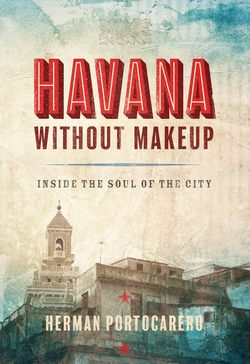Читать книгу Havana without Makeup - Herman Portocarero - Страница 23
На сайте Литреса книга снята с продажи.
Оглавление16.PROPOSAL FOR A CONTROVERSIAL MONUMENT
Precisely then, I was preparing for my first years of work in Havana. In the spectacle of dismay witnessed all over the world, I heard from pundits and colleagues: “You’ll live the Great Change.” I was still unaware at the time that various generations of diplomats posted to Havana had believed and predicted this, and had had to pack up at the end of their four-year terms with their prophecies unfulfilled, useless as chapters for their memoirs.
But I was more guarded in my expectations, in part because my own background and childhood experiences had made me aware of resilience and capacities for survival. Unbeknownst to myself, I had captured Havana’s soul even before knowing her.
After her Hour Zero, the clock started to tick again as of 1995. The army began to produce food to sell to the public. The black market was undercut by legalizing the possession and use of the U.S. dollar as legal tender. Habaneros were allowed to rent rooms to tourists.
Responding to these and similar measures, almost immediately a wave of foreign tourists flocked to Havana: a mixture of young backpackers and middle-aged men seduced in equal proportions by cigars, rum, music, political mythology, and easy sex, if not straightforward prostitution. Havana, reawakening the untamed spirit full of contradictions that she alone knows how to live with, catered to all. It turned the capital into a more vibrant, adventurous, and edgy place than it had been at any time since 1960. Nightlife of all descriptions and for all persuasions flourished as colorful anarchy, and was oddly tolerated by the establishment as long as it brought in the hard and convertible currency needed for the island’s economic survival.
Forget Gorbachev: Fidel had his own plan, and Cuba would save herself her own way, taking the side effects and the excesses in stride.
Look the other way for a few years and tolerate all that has been forbidden but now brings you fula: dollars. Speed up the building of twenty-five thousand four-star hotel rooms on the beach of Varadero and on the cayos, with the help of Spain, France, and Holland. Allow habaneros to produce some hand crafted souvenirs and open small restaurants for tourists. Send every unemployed musician to the Plaza de Armas to sing endless “Guantanameras” at a buck a pop. Keep the foreign youngsters amused in Havana while you negotiate with Canada and Europe to receive charter flights to bring the average tourist for a week to a Cuba that doesn’t really exist. And of course, have every habanero who wants to take advantage of the new possibilities pay for a license and charge them a flat tax.
It worked remarkably well. And once the new system was up and running, there followed a thorough spring cleaning of the city, carried out by a special new police brigade to arrest every jinetera (prostitute) and to pull her off the arm of the yuma, or foreigner, by her side. This operation, too, was successful, on the surface. It’s not that the naughty and rough Havana was wiped out; it simply went underground again, where it had been hiding for centuries.
In fact, the city should have built a monument to the Unknown Jinetera. Every city has moments as a muse and as a whore. In Havana’s most miserable years, prostitution was a sizeable part of the new dollar economy, saving many families. It was in the statistics – or rather, in what the official statistics never showed. There was no longer any “black money,” but the dollar expenses of the national budget widely exceeded the legitimate hard currency income. So where did all the other dollars come from? The yanqui currency no longer had a bad taste.
A close friend, a prominent salsa band leader, jokes that the jineteras, “social workers of the night,” saved the Havana music scene by bringing their escorts to concerts, which would otherwise have played to empty theaters and casas de la música.
Abandoned by the hugging Soviet Bear, Havana was rescued by a dancing girl. She should be immortalized.
